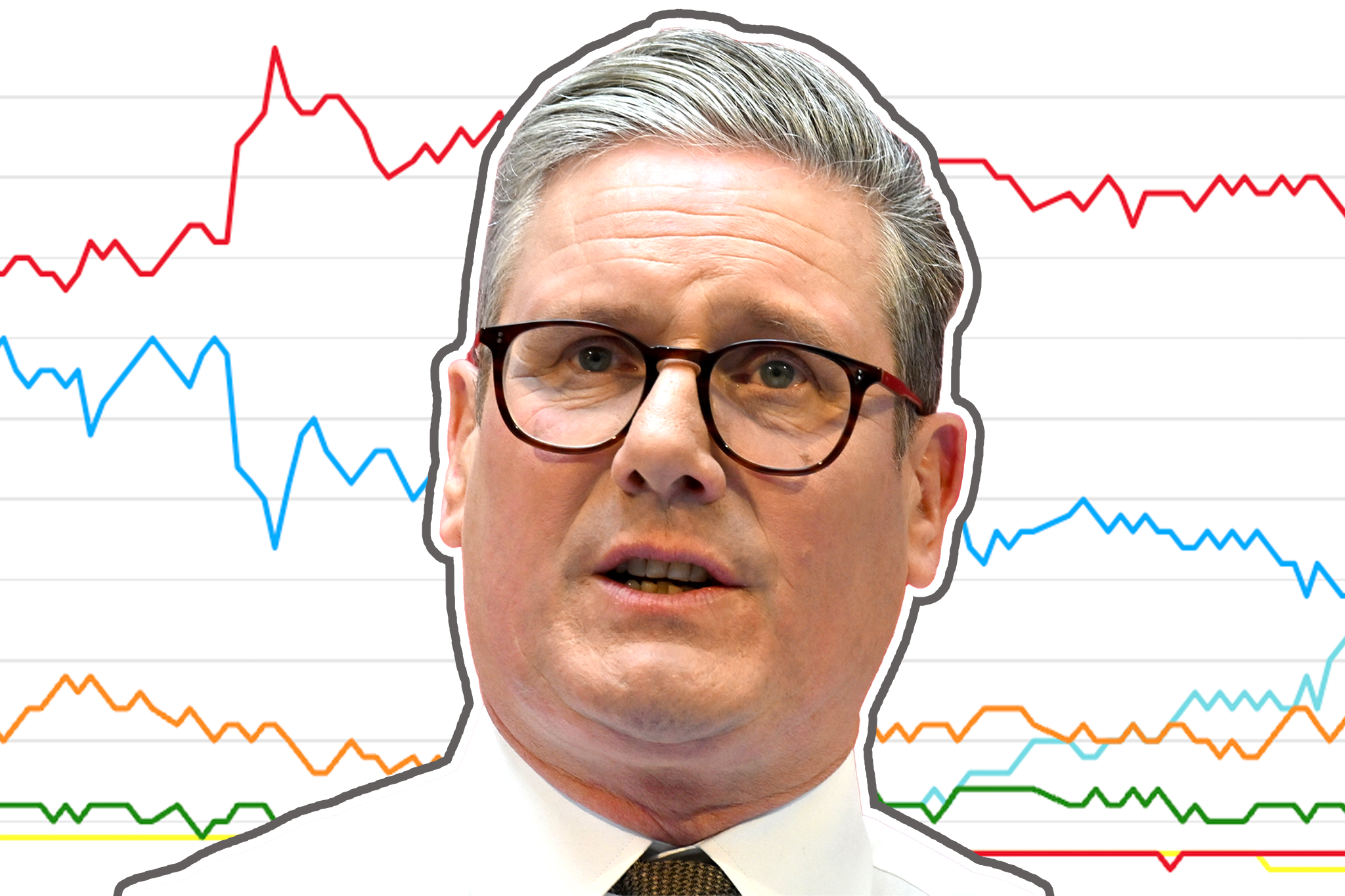The Independent's journalism is supported by our readers. When you purchase through links on our site, we may earn commission.
Labour should join the Tories in ignoring the polls
With less than two weeks until election day, Keir Starmer’s high command is so concerned about the effect their 20-point lead in opinion polls might have on the result, they are considering banning them during the final stretch of future campaigns, says Andrew Grice


The Conservatives fear the opinion polls which are shaping the election campaign will encourage more of their many disenchanted supporters to switch to Nigel Farage’s Reform UK on the grounds the Tories are certain to lose anyway. “This election is all about the polls, not the policies,” groaned one senior Tory.
However, Labour’s high command is privately worried about the polls, too. It is not losing sleep about ministers’ warnings about a Labour “supermajority”, but it is fretting that surveys predicting a massive majority might give progressive voters with doubts about Keir Starmer’s lurch to the centre an excuse to vote for the Green Party, pro-Palestinian independents or George Galloway’s Workers Party of Britain. Others might not bother to vote. “People should remember that we haven’t won yet; we need every vote,” one Labour insider said.
Some Labour aides fear a record low turnout in modern times. They worry that MRP polls, which survey many more people than conventional polls and use socio-demographic data to predict the result in every constituency, might overstate how many 18-34-year-olds will turn out.
Some Labour insiders envisage a “disappointment factor”, even if it secures a 100-plus majority, because that would fall a long way short of the pollsters’ most optimistic predictions for the party.
I’m told some of Starmer’s closest allies are genuinely concerned about the way the polls are dominating the campaign. At least one wants Labour to legislate to ban polls in the three weeks before an election once it is in government.
They have a point. The media’s intense focus on the polls has undoubtedly influenced the course of the campaign. One of many examples: the headlines garnered by Nigel Farage when one survey put his Reform UK ahead of the Tories. While Reform is closing the gap, the latest average of the polls puts the Tories four points ahead of Reform.
True, it’s fun for the media to list the cabinet ministers who might lose their seats (even though the names vary according to different polls). It would be foolish to refrain from writing stories predicting the next “Portillo moment” if several cabinet members are booted out. But the intense spotlight on the polls does leave less media space for scrutiny of the parties’ policies, which matters more to the public than the latest snapshot of the horse race.
Labour is convinced that inaccurate polls contributed to its defeat at the 2015 election. Surveys suggested a hung parliament and the media focused on a possible Lab-SNP post-election deal rather than Tory policy. The Tories won with a seven-point lead over Labour. Not for the first time, the pollsters had too many Labour voters in their “representative samples”.
Tom Baldwin, Starmer’s biographer and Labour’s director of communications in 2015, told me: “Polls are no longer explaining what is happening in elections but also influencing their outcomes. In 2015, all those polls indicating a hung parliament played directly into the Tory strategy of saying the biggest danger to our economy was a Labour-SNP coalition. It meant there was virtually no scrutiny of how a Conservative majority would mean a reckless Brexit referendum. By getting their numbers wrong, the polling companies helped the Tories win and – indirectly – helped change the course of our country.”
The publication of polls is banned in 16 EU countries, for periods ranging from one day to one month before election day. Concerns that bans curb freedom of expression have resulted in the duration of some being reduced.
Although feelings are running high in Labour land, I suspect a UK ban is unlikely. In government, Labour would probably judge the move unworkable: political parties and hedge funds would commission private polls and their findings might be selectively leaked. Foreign media reports of UK private polls would soon find their way on to social media.
Could today’s polls be wrong? They were when the Tories won in 1970 and 1992, as well as in 2015. But even if the current surveys prove as inaccurate as in the pollsters’ annus horribilis of 1992, Labour would reverse the Tories’ 2019 victory and enjoy a majority of 80.
Of course, fretting about the polls is a problem of success for Labour. A party whose perpetually gloomy campaign coordinator Pat McFadden reminds colleagues “we usually lose” is increasingly confident of winning. It can now dare to dream. In contrast, the Tories’ betting scandal is the latest campaign disaster in an ever-worsening nightmare for Rishi Sunak.






Join our commenting forum
Join thought-provoking conversations, follow other Independent readers and see their replies
Comments